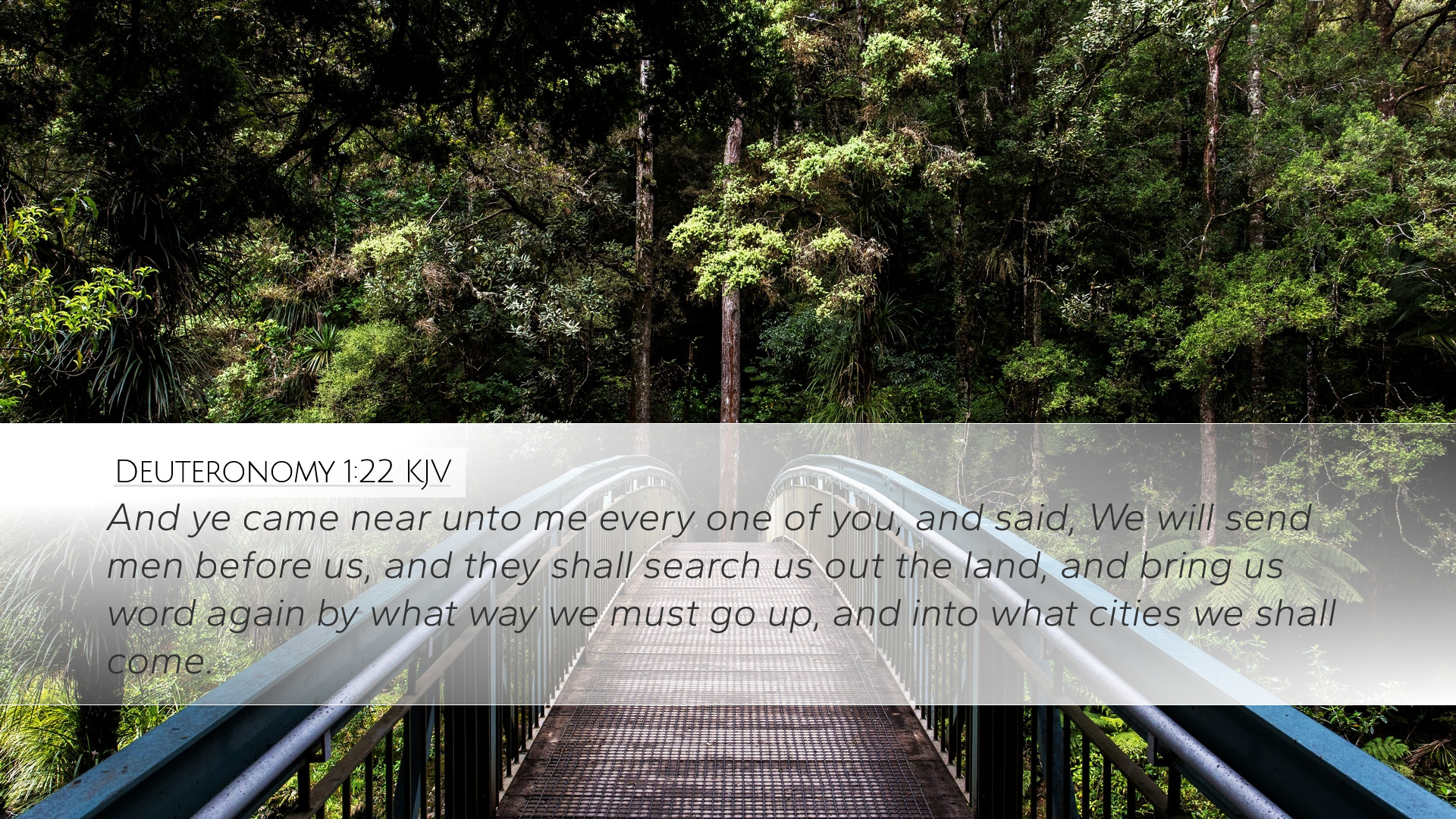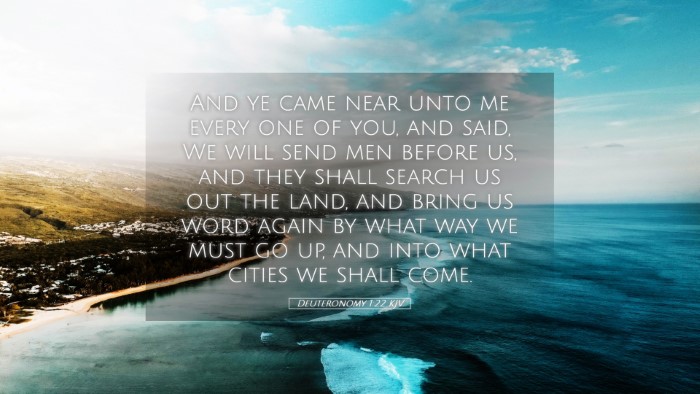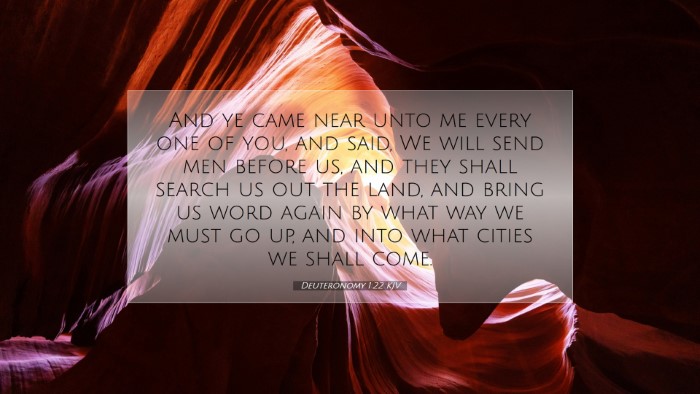Commentary on Deuteronomy 1:22
Deuteronomy 1:22 states, "And you came near unto me every one of you, and said, We will send men before us, and they shall search us out the land, and bring us word again by what way we must go up, and into what cities we shall come." This passage serves as an important juncture in the Israelites' journey towards the Promised Land, highlighting a moment of significant decision making and human initiative. Below is a combined commentary from notable public domain sources.
Contextual Background
The book of Deuteronomy is essentially a series of speeches given by Moses before the Israelites entered the Promised Land. It serves both as a reminder of their past experiences and as a guide for their future conduct. In Chapter One, Moses recapitulates the story of the Israelites from their Exodus from Egypt to their expedition toward Canaan. This chapter stresses the importance of faith, obedience, and the consequences of doubt.
The Request to Send Spies
Moses' Remembrance: Moses recalls how the people approached him with a request to send spies into the land of Canaan. Matthew Henry notes that this request was not initiated by God; rather, it arose from the people's fears and uncertainties about entering the land they had been promised. This signals a lack of faith, as they were hesitant to trust God's word and His power to deliver them into the land.
Nature of the Proposal: According to Albert Barnes, the people's proposal was to send out men to 'search out' the land as a means of confirming the good promise God had already given them. This indicates their desire for tangible evidence of God's intentions rather than solely relying on faith. Adam Clarke offers insight into the implications of this action, pointing out that the request shows a desire for human reassurance over divine assurance, which often leads to increased anxiety about the journey ahead.
Lessons on Leadership and Trust
This verse is also significant for leaders and followers alike. Pastoral Insights: For pastors and spiritual leaders, it serves as a caution about the weight of communal decisions. Moses, as a leader, had the moral responsibility to guide his people according to God's will. Yet, the request to send spies underscores the need for leaders to discern between divine direction and human suggestion. It also emphasizes the dangers of allowing congregational doubt to dictate the course of action.
The Nature of Spiritual Discernment
Finding Balance: The balance between seeking wise counsel and maintaining faith in God’s promises is nuanced. While it is wise to gather information and understand circumstances, reliance on human plans must be carefully measured against trust in God's sovereignty. Henry notes that God does not reject the idea of sending spies outright; instead, He allows it, but it ultimately leads to a path of disobedience.
Consequences of Doubt and Fear
The Outcome: The request set in motion consequences that reverberated throughout Israel's history. In the broader narrative, the spies' report led to fear and rebellion among the people, resulting in forty years of wandering in the desert. This outcome serves to illustrate the ramifications of mistrust and the human inclination to rely on sight rather than faith.
Theological Implications
This verse opens discussions about human agency and divine sovereignty. When exploring the implications of the Israelites’ request, scholars should consider the tension between God's providential control and human decision-making. Clarke posits that this incident teaches about the limits of human wisdom in comprehending God’s will and the importance of submitting to divine instruction, even when it conflicts with personal desires or fears.
Contemporary Applications
Faith vs. Fear: In a contemporary context, this passage prompts discussions about how faith communities navigate challenges. Are church leaders still seeking to confirm God's calling through empirical evidence rather than spiritual conviction? This verse encourages reflection on our willingness to step into the unknown based on God's promises rather than ensuring security through our understanding.
Concluding Thoughts
The commentary on Deuteronomy 1:22 emphasizes crucial themes that resonate in pastoral care, theological reflections, and personal faith journeys. The Israelites' request to Moses serves as a perennial reminder of the ways doubt and fear can shape our spiritual journey. For the community of faith, it provides a vital lesson on maintaining faithful trust in God’s plans, regardless of the circumstances faced.
As such, Deuteronomy 1:22 invites both scholarly exploration and personal reflection on how we respond to God's direction in our lives—whether in faith or in fear.


